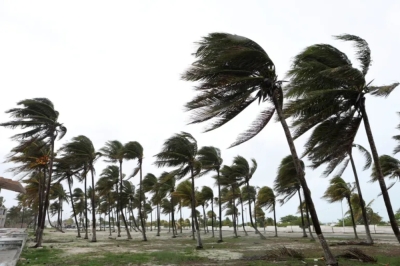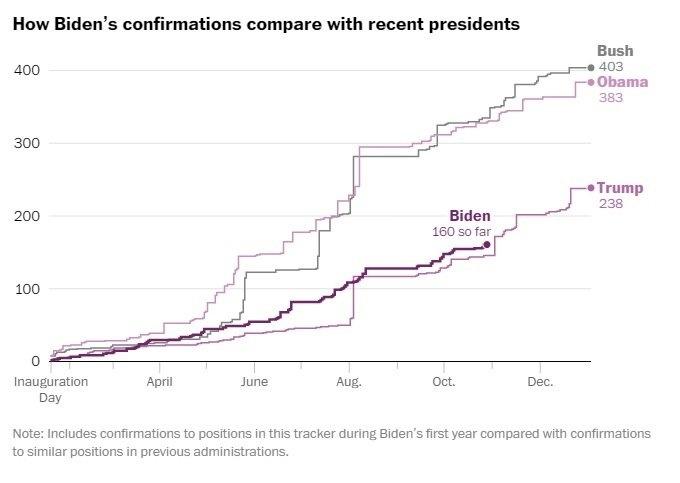
Biden Appointments: Is Lack of Personnel A Policy?
One of the complaints fairly levelled against President Donald Trump was that, in a pure numerical sense and setting policy disagreements aside, his administration did a poor job of appointments.
There are about 4,000 jobs in the federal government that require presidential appointment, with about 1,200 of those jobs requiring Senate confirmation. The Trump administration was slow to fill these jobs. For example, the Economist magazine noticed the slow pace of Trump administration appointments back in July 2017 with an article titled, “Donald Trump’s missing government: Presidential lethargy, not Democratic obstinacy, is to blame.” By the end of the Trump administration, of the roughly 750 appointments requiring Senate confirmation, about one-third had no appointments at all.
How is the Biden administration doing? The nonprofit Partnership for Public Service together with the Washington Post maintain an ongoing tracker that keeps track of appointments to about 800 of the more prominent positions that need Senate confirmation. Here’s their figure showing confirmed appointments. So far, the Biden administration is quite similar to the Trump administration, both lagging well behind the two preceding administrations.

I’ll confess that this total number of required appointees seems crazy to me. My suspicion is that bill after bill specified a need for certain positions to be presidentially appointed, without anyone really keeping track of the general total. It would probably be sensible to cut back the number substantially. The only way this total number of appointments can possibly work is to have a president with an exceptionally deep bench of advisers, who in turn can draw on deep networks of their own. Thus, one might be unsurprised that political novice President Trump lacked the network to find a large number of nominees, while expecting that nominees would be easier to find for a Biden administration. But it hasn’t worked that way.
In the early 1980s during the Reagan administration, it was common to hear the slogan “personnel is policy.” Conversely, a lack of personnel will inhibit policy. When problems come along–from pandemics to trade, from supply chain shutdowns to foreign policy–and there is no political appointee in place, then the regular government workers in that department are left to muddle through as best they can, without a lot of direction and with strong incentives not to do anything innovative or creative that might either attract blame or end up contradicting whatever official policy line ultimately emerges A lack of personnel is a kind of policy, too.
Trending
-
1 UK Tech Sector Secures a Third of European VC Funding in 2024
Azamat Abdoullaev -
2 France’s Main Problem is Socialism, Not Elections
Daniel Lacalle -
3 Fed Chair Jerome Powell Reports 'Modest' Progress in Inflation Fight
Daniel Lacalle -
4 AI Investments Drive 47% Increase in US Venture Capital Funding
Felix Yim -
5 The Future of Work: How Significance Drives Employee Engagement
Daniel Burrus





Comments